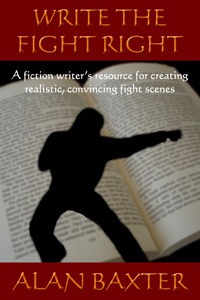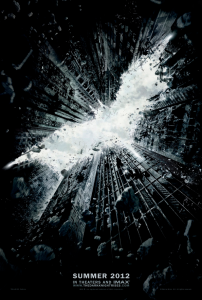Alan Baxter's Blog, page 81
July 18, 2011
Kapow! At Angela Slatter's blog
Angela Slatter was kind enough to invite me to post over at her blog about fighting. In fact, she kinda threatened me, but that's okay. Fighting and writing are pretty much my favourite things.
.
July 14, 2011
A reading in Reno
 This is some very exciting news. Worldcon this year is in Reno, Nevada. I'm rather disappointed that I can't be there, as I love cons and would go to them all if I could afford it. But, even though I can't be there, my work can. Bob Kuhn, aka Tolkien's Dragon, will be reading excerpts from my novels, along with a bunch of other Aussie and Kiwi spec fic authors, whose company I'm honoured to share. Bob has a couple of reading slots reserved and he's generously offered to showcase Antipodean SF in those readings. Check out the kind of talent Reno will be exposed to – Harper Voyager authors Fiona McIntosh, Mary Victoria, Kim Falconer, Nicole Murphy and Helen Lowe, and cheeky ring-ins Angela Slatter, Lisa Hannett and myself. Possibly even more yet to be determined.
This is some very exciting news. Worldcon this year is in Reno, Nevada. I'm rather disappointed that I can't be there, as I love cons and would go to them all if I could afford it. But, even though I can't be there, my work can. Bob Kuhn, aka Tolkien's Dragon, will be reading excerpts from my novels, along with a bunch of other Aussie and Kiwi spec fic authors, whose company I'm honoured to share. Bob has a couple of reading slots reserved and he's generously offered to showcase Antipodean SF in those readings. Check out the kind of talent Reno will be exposed to – Harper Voyager authors Fiona McIntosh, Mary Victoria, Kim Falconer, Nicole Murphy and Helen Lowe, and cheeky ring-ins Angela Slatter, Lisa Hannett and myself. Possibly even more yet to be determined.
It makes me breathe a little fast just to be in a sentence with names like that, let alone have my work read among theirs by a talent like Bob. Here's the annoucement on the Voyager Blog.
I got to share a reading with Helen Lowe at last year's Worldcon in Melbourne, which was great fun. The only thing I can think of that would be better than reading my work to a room full of people at a Worldcon is having a professional voice artist do it for me!
So, if you're going to Reno for Worldcon, be sure to check out some great Aussie and Kiwi spec fic, read by Bob. You can get an idea of his great reading voice by listening to some sample recordings on his website here.
.
July 12, 2011
The Dark Knight Rises – official teaser poster
OMGOMGOMG! Christopher Nolan, who art our Bat-master, please please please make it three from three. (Click the image for full-size glory.)
.
July 11, 2011
A short a day – first week of July
I blogged about this recently and I've already got slack with it. I haven't managed to read a short story every day, but I have managed most days. Here are the things I've read this past week or two:
Freefall by Eric James Stone, from Daily Science Fiction. This was a very powerful piece of flash fiction with some great science. I guessed how it was going to go down, but still enjoyed reading it play out. I subscribe to Daily Science Fiction and get a new story in my inbox every day.
Acception by Tessa Kum, from Baggage anthology, ed Gillian Polack, Eneit Press. Excellent near future dystopia of racial profiling and Orwellian mind control. This scored a bunch of award nominations, and totally deserved them. A real must-read.
Trickster by Mari Ness, from Clarkesworld. Very interesting idea and a nice literary style, but a distinct lack of explanation in why things happened the way they did and what for. Not really any story there to speak of, leaving me with more questions than answers, and not in a good way. Still worth a read and others will probably get more from it than me.
The Gateway of the Monster and The House Among The Laurels by William Hope Hodgson. Catching up on a hole in my reading, thanks to Adam Christopher's recommendation. Carnacki the Ghost-Finder stories, first published between 1910 and 1912 in The Idler magazine and The New Magazine, are classic old school supernatural detective yarns. They're great fun and well worth a read. I found a free collection in the Kindle store. Bonus.
Valeria by Ian R Faulkner in Murky Depths #16. I have a story, Mirrorwalk, in this issue and finally had time to read some of my contributer's copy. This story is a dark, violent cyberpunk noir tale. Gritty and clever, and quite disturbing. Not the most original idea, but very well played out with some original twists.
Doorways For The Dispossessed by Paul Haines from The Last Days Of Kali Yuga. The original "backpacker horror" yarn. An excellent exploration of lucid dreaming and its potential dangers with a cool, horrible twist. Paul Haines is an outstanding writer and this is probably the definitive Haines collection. Get it. Now.
I'll post more updates like this on infrequent occasions. I'll try to read a short a day, but you know how it is. What have you read lately?
.
July 8, 2011
And now for something completely different – Nicole Murphy
To say that I had something a bit different for you lot today would be a bit of an understatement. But let it never be said that I'm some kind of one trick pony. I know a few tricks and I have friends who make me look better. To that end, I'm happy to host a guest blog today from urban fantasy/romance writer Nicole Murphy. I've know Nicole for a while now and I'm very proud to call her a friend. With the release of the third book in her current series, she's doing a few guest posts around the intertubes, and today she's appearing here. Some of the things she has to say are very interesting, so read on.
On romance… by Nicole Murphy
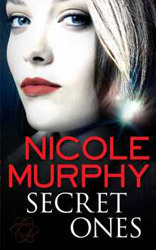 So here I am, a guest on Alan Baxter's blog. A writer who deals in dark fantasy, horror, mystery and suspense. All the fabulously deep and dark and gritty stuff. And I write light urban fantasy romance. The Courier Mail described my work as "a lightweight but rollicking romp through the space where fantasy and romance collide".
So here I am, a guest on Alan Baxter's blog. A writer who deals in dark fantasy, horror, mystery and suspense. All the fabulously deep and dark and gritty stuff. And I write light urban fantasy romance. The Courier Mail described my work as "a lightweight but rollicking romp through the space where fantasy and romance collide".
What does someone like me write about for the fabulous readers of Alan's dark fantasy?
The answer – embrace the difference. Stand tall and proud and announce that I'm going to write to you all today about why I love romance.
A) Romance is about positivity and finishing on a high note. There are days when it's really hard to find the positivity IN ANYTHING. So I can grab a romance and know that no matter how hard things get for the hero/heroine, it's going to work out all right in the end. That's a nice thing to be able to rely on.
B) Romance is about feminism and strengthening views of women's sexuality. Now, I'll admit it doesn't always succeed at this – but then not every horror novel succeeds at being scary. But there are still huge tracts of the literary world out there where women are not seeing strong role models or being shown that they deserve happiness whether sexual or not. In the romance world, we get to see women taking on the men, beating them at their own game and getting the loving partner that can make their life better.
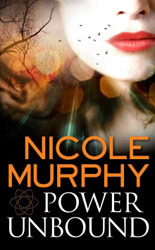 C) Romance is about acceptance. There's such a range of relationships and sexuality in the romance genre. On the one hand there are the inspirational books – heavily based in religion (generally a Christian one) in which there's no kissing or touching. On the other hand we've got erotica, featuring menages and S & M. At the moment, there's a rise in gay romance (mostly being read by women, interestingly) and a massive call for romances dealing with different cultures and races.
C) Romance is about acceptance. There's such a range of relationships and sexuality in the romance genre. On the one hand there are the inspirational books – heavily based in religion (generally a Christian one) in which there's no kissing or touching. On the other hand we've got erotica, featuring menages and S & M. At the moment, there's a rise in gay romance (mostly being read by women, interestingly) and a massive call for romances dealing with different cultures and races.
D) Romance is about characterisation and world-building. Because of the restrictions on the plot (it HAS to end in a happily-ever-after or it's not romance, it's just romantic), you've got to work hard on the characters and world in order to create an interesting and exciting book that the readers will want to connect to. Some of the most memorable fictional characters I've come across have been in romance.
E) Romance is about escapism. People say this like it's something bad but of course it isn't. We all need to get away from the real world for a time – because we're tired, because we're stressed, because we're worried, because we're overwhelmed. A break from all this for just an hour or so can give us the push we need to move on and get through it. Most romances are written in a style that's very easy to read and it means they're easy to jump into, while away the time and then pop out of again.
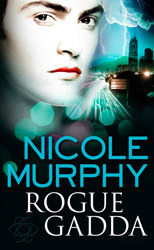 F) Romance is about love, and love is one of the most powerful driving forces in human existence. Fiona McIntosh said it nicely on a panel at Worldcon last year – 'if you're not dealing with romance in your work, then you're not dealing with the totality of the human condition because at the end of the day, we all want to be loved'.
F) Romance is about love, and love is one of the most powerful driving forces in human existence. Fiona McIntosh said it nicely on a panel at Worldcon last year – 'if you're not dealing with romance in your work, then you're not dealing with the totality of the human condition because at the end of the day, we all want to be loved'.
I know romance isn't for everyone. There's things that I don't like to read (and no, dark fantasy isn't one of them  ) so I can understand that you can give it a try and not find it your bag.
) so I can understand that you can give it a try and not find it your bag.
But I hope that if you've ever been inclined to bag romance, you'll now think twice about it. Or at least go and read a few books (preferably mine!) before you put it down.
***
Giveaway question – To win a copy of Rogue Gadda, tell me what you love about your favourite genre.
[Leave comments below and Nicole will pop back to see them. She'll pick a winner for the copy of the book - Alan]
Rogue Gadda
They came to the night that she and Hampton had made love. She hoped this was something the Firimir would skip through but no, she had to sit there in front of Hampton and relive those exquisite memories in the most humiliating fashion.
She wanted to squirm, both from embarrasment and arousal – Goddess, watching them together would set anyone on fire. Then she realised the Firimir could probably feel her arousal and embarrasment won.
.
July 5, 2011
Agent Stacia Decker gives the scoop
I found this one via Adam Christopher's twitter post. Stacia Decker is an author agent who represents many genre authors, including Adam. Adam came across this old post on Dan O'Shea's blog where he has a chat with Stacia about all aspects of being an agent and what works for her in query letters, author/agent relationships, social media and so on. Also, she's a fan of bacon and dogs, which makes her totally cool.
For all writers, this is a really interesting fifteen minute podcast. Go. Listen.
.
Guest post at Nicole Murphy's blog
Nicole Murphy, speculative fiction and romance author, is running a series of guest posts called Dreams And Fulfilment. She's got a plethora of great writers to chime in on the subject and for some crazy reason she asked me too. You can find my post at her blog now. Bookmark her site to see the others, as I think they'll all be pretty interesting.
This is the first guest post from Kevin J Anderson – Seriously worth the read.
.
June 30, 2011
Copyright Agency Limited releases results from digital publishing trends survey
The full article is here but I thought I'd pick out the key points and comment on them as it makes for interesting reading. And you know how I like to comment on stuff. CAL conducted a survey of members to learn more about their views of, and experiences with digital publishing in Australia. Over 2,000 CAL members responded, making this survey the largest of its kind in the Australian publishing environment. The survey was sent to all CAL members, ranging from international publishers to self-published authors, asking about their digital experiences and thoughts on the future.
Here are the key findings, in bold, with my comments after:
Both authors and publishers think the benefits of digital publishing far outweigh any of the downsides
I think this is a given now. There are very few people left, I think, who see digital publishing as a problem.
Around half of all authors and publishers create digital products
This surprised me – I thought it would be more by now. But more on that lower down.
The majority of publishers are still developing their digital strategies
This is not really a problem, but I see it more as a reaction to a rapidly changing environment. I think publishers will be constantly developing their digital strategies to keep up. It's not something that will settle for a long time yet.
Only 15% of publishers have a competitively differentiating digital strategy
This is a problem. Digital needs to be seen as something different to the standard, existing print model of publishing and has to be treated differently. Publishers are already being left behind due to a resistance to accept this change and the longer they prevaricate, the harder it will be to catch up. Which they will inevitably have to do.
To date, 26% of publishers have no digital strategy at all
This is astounding! Just over a quarter? This is fiddling while Rome burns. It's playing bowls while the Spanish Armada hoves into view. It's foolish in the extreme to simply ignore the digital publishing revolution. Whether you like it or not, it is happening. It's going to continue happening. It's not a passing fad. There will be paper books and traditional publishing for a long time yet, but e-publishing is racing to catch up and will be rolling alongside as completely mainstream very soon.
To digress slightly, there seems to be a large proprotion of people that ask: Are you into paper books or ebooks? It's not an either/or situation. I regularly buy both. I enjoy both. The vast majority of readers will be the same. But there are a lot of things now that I'll buy as an ebook that I would never have bothered with in print – for cost, storage and ease of reading reasons – which makes the combination of print and digital far better than simply one or the other. Videos didn't kill cinema, television didn't kill radio. Ebooks won't kill print publishing. But to completely ignore the rise of digital and have no strategy for it as a publisher is idiotic.
Digital publishing currently contributes less than 5% to the income of most authors and publishers – however, around 10% of authors and 14% of publishers currently make more than half their income from digital publishing
These are slightly rubber stats, but interesting nonetheless. Overall, the 5% figure stands, but that will be growing and will continue to grow until it is a much larger number. I'd say the authors and publishers making more than half their income from digital are the self-published, indie publishers and small press. And they will continue to grow in number as well. The digital options now make self-, indie- and small press publishing far more viable options than they ever were before and that's very exciting.
Lower costs and improved access to markets are the greatest benefits for authors and publishers alike
See above.
Technical expertise, market dominance of multinationals and piracy are the three concerns shared by authors and publishers
This is no real surprise and is always going to be the case. Keeping up with technology and feeling the pressure from the "big guys" is a concern in all forms of business. From the corner store threatened by the massive super mall, to the indie music label threatened by the big labels, to the cottage industry threatened by the conglomerates. It's always a battle in a capitalist environment. And piracy is something that affects all creative industries – film, music, television and publishing. Hell, I remember borrowing my friend's Dungeons & Dragons rule books and spending hours photocopying them in the school library, because I couldn't afford to buy my own.
But remember – the only thing worse than piracy is obscurity. It's not going anywhere and we have to accept it as part of the digital landscape.
Low-level technical skills are the most significant barrier to market entry
I think this is more a fear than a reality. Anyone who suggested this has probably not tried to publish digitally because they think they won't be able to. It's actually bloody easy, and getting easier all the time.
Authors and publishers share some common views in relation to e-book royalties
Well, that's good. We need to see the explanation to understand this point. So, from the original article:
Even in the contentious area of e-book royalties, authors and publishers shared some common views. No doubt there was some divergence of opinion, but the differences were by no means extreme. Similar numbers of authors and publishers (16.9 and 17.8%, respectively) thought e-book royalties should be set in the range of 11-20% of net receipts. Another 16% of authors and 13% of publishers thought that range should be 21-30%. Unsurprisingly a large cluster of authors (16.3%) felt the range should be 41-50% (whereas only 4% of publishers agreed). Interestingly, only 14.3% of authors felt the royalty should be 51% or greater. It should also be noted that when asked about the topic of ebook royalties, there was a significant proportion of both authors (24.3%) and publishers (38.8%) who chose not to express an opinion.
I think you'll also find that a lot of authors are seriously considering retaining their e-rights and self-publishing their digital catalogue, so the percentage of royalties to a publisher becomes moot. But, speaking personally, if my publisher will cover all the technical aspects of design, layout, editing and so on, and leave me to write, I'm happy to split the royalties, just like regular publishing. Percentages will vary a lot, as they already do with print.
2/3 of CAL members believe that digital sales will eventually overtake print for the Australian publishing industry as a whole
And I agree with them. As I've said many times before, print will not die, but it will become boutique to some degree. Plus, does Print On Demand count as digital or print? Because the vast majority of paperback sales are likely to be POD before too long, in my opinion.
Of all the 2,090 CAL members surveyed, almost 19% own an iPad and over 12% own a Kindle
Given the supposed resistance to the rise of digital publishing, these are very revealing figures. There are also a lot of other ways to read ebooks and I don't know if those were covered. It's happening and only a handful of grumpy old bastards are really complaining.
These are exciting times and we should be enjoying the greatest change in publishing since the invention of the Gutenberg press!
Go to the original article on the CAL site and have a read. Especially check out the italicised comments at the end. So, what do you think?
.
June 28, 2011
A short a day – my plan
Benjamin Solah mentioned this on Twitter and the original idea came to him from Jodi Cleghorn. The idea is that a person makes time to read (at least) one short story every day. This appeals to me for many reasons.
I love short fiction, as I've mentioned here several times before. I love reading it and writing it. I've got loads of anthologies and magazines piled up all over the place and I try to dip into them as often as possible. Some are books that I have a story in and I've got a contributor's copy. Others are anthologies or single author collections I've bought because the theme or writer appeals to me, maybe it's someone I know and so on. Then there are all the magazines, in print and online, that I enjoy. So I read a lot of short stories.
When I read a good book, I try to review it here, and on Amazon and Goodreads. I posted on that very subject recently. Sometimes that will be a review of an anthology or single author collection. But too often, the short stories I read go by unmentioned. When I saw this "A Short A Day" idea, it occurred to me that I could use it to draw attention to short stories with the same kind of reviewing I do for books. I'm not really a reviewer, as such, but I do think it's important for people to spread the word about stuff they enjoy. Why not apply that to short fiction too? It only takes ten or fifteen minutes to read a short story and surely we can all find that much time in our day to have a break and read.
So, here's the plan. I'll be reading at least one short story every day and I'll try to keep a note of them all. Every week or so, I'll post here with a list of the things I've read and I'll review some of the ones that really moved me. With any luck that will help other lovers of short fiction out there find stories and authors they might otherwise have missed.
I'm posting now to put it in permanent ink that I plan to do this and hopefully that will help me see it through. If I slack off on the concept, be sure to give me a virtual kick up the arse about it.
.
Christians upset about Muslim billboard
I know, those crazy Christians are always upset about something. For that matter, so are the Muslims. Let's be honest, the religious of any persuasion have always got something to moan about. But it's been a while since I lampooned a bit of religious idoicy here on The Word and when I saw this article in the Sydney Morning Herald, I knew I had to comment.
In a nutshell, an awareness campaign by Islamic group MyPeace has resulted in some billboards going up to try to point out that Muslims really aren't so different to Christians, or anyone else for that matter. Of course, they're just people like all of us. The religious, regardless of persuasion, are all far more alike than many of them will ever be comfortable admitting. If nothing else, they share a large portion of willfull ignorance. And, that one foible aside, they're no different to anyone else. But I digress.
One of these awareness billboards says: JESUS: A PROPHET OF ISLAM. And there's a number and a website.
Some Christians are upset because it demotes Jesus from the son of god to a mere prophet and thereby injures their delicate religious sensibilities. And here's where the relevance to this blog comes in – I can turn anything I find interesting into a debate on words, language and storytelling after all. The Muslims in question are trying to point out that they revere Jesus too, just not in the same way. Meanwhile, the Christians are upset that the status of Jesus is not being recognised. What we have here are two fantasy epics warring about who has the better angle on truth, when, in fact, neither of them have anything even vaguely resembling proof. Ah, religious tolerance – what's that then? Some of the quotes really made me laugh.
One complainant said that Jesus "must not be associated with such [an] aggressive religion". Oh, the irony! She burns!
Here's my favourite:
"What [my child] knows of Islam she has learnt from watching mainstream news broadcasts and to have her saviour identified as being part of this malicious cult was very traumatic!"
Your child told you that, did she? After a considered exploration of available religions and a decision to be Christian? Or did you just tell your kid that's what she thought?
Anyway, a complaint was lodged with the Advertising Standards Bureau and, thankfully, common sense prevailed:
"such a statement does not, of itself, discriminate against or vilify people who hold different beliefs… The board acknowledged that the Islam faith does consider that Jesus is a prophet of Mohammed… and that it is not unreasonable for children to be exposed to a variety of information in their daily lives, some of which may conflict with the views with which they are raised".
No shit, Sherlock. We can be thankful for that decision, at least.
MyPeace founder Diaa Mohamed said, "[The advertisement] conveys the message that, like Christians, we the Muslims also regard Jesus with extreme reverence. The idea being that the people will see beyond the words in the advertisements and recognise that Islam and Muslims are not much different from any other ordinary Australian."
Which you'd think was quite fair enough. I wonder if he would be equally magnaminous if the Christians put up billboards all over town saying, "Mohammad is not a prophet of god and the only way to heaven is through Jesus." The Muslims would be fine with that, right?
These kind of things give me so much fuel for characterisation and plot in fiction. People really are fascinating creatures. Or, to put it another way, as my old Grandad used to say, "There's nought so strange as folk."
.

